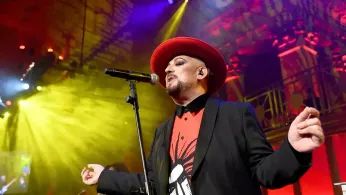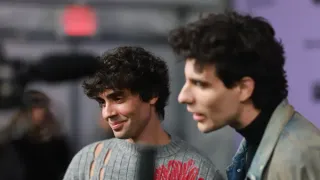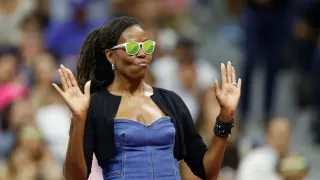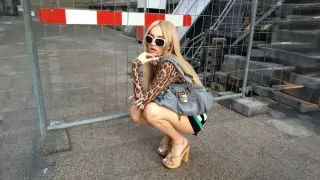
Nov 13
Boy George Isn’t Playing Along: Why Turning Down ‘Celebrity Traitors’ Is a Power Move for Queer Icons
READ TIME: 2 MIN.
When Boy George, the Culture Club legend and unapologetic trailblazer, says “thanks, but no thanks” to a prime-time BBC reality gig, it’s not just another celebrity negotiation—it's a headline that says as much about queer resilience as it does about mainstream media’s perennial pay gap .
Speaking to the press, Boy George didn’t mince words: “They don’t pay enough.” That’s not just a purse clutch—it’s a call-out, a declaration that LGBTQ+ talent shouldn’t have to accept less than their straight (and often less iconic) counterparts. In a cultural landscape where queer stars are sometimes lauded—sometimes tokenized—but rarely compensated at the level their impact warrants, George’s stance is both a refusal and a rallying cry.
For many queer viewers, the reality TV circuit is a double-edged sword. On one hand, it can be a launchpad for LGBTQ+ visibility and a platform for authentic stories. On the other, it often risks reducing vibrant personalities to background drama or marketing assets. Boy George, with decades in the public eye and a catalogue of anthems that shaped generations, doesn’t need to prove his value in the “traitors and faithfuls” game of reality TV .
His decision lands at a moment when the industry is under increasing scrutiny for how it treats LGBTQ+ talent, from casting to compensation. While the BBC has reportedly struggled to sign big stars for the show, George’s public brush-off may highlight why: “taking ownership” isn’t just about creative direction, but about demanding equitable treatment .
Boy George’s legacy is built on more than hit singles and outrageous hats—it’s built on radical honesty and a refusal to shrink himself for anyone’s comfort, boardroom or otherwise. His quote—“They don’t pay enough”—is more than a negotiation tactic. For LGBTQ+ audiences, it’s a reminder to know our worth, demand respect, and be unafraid to walk away when the offer doesn’t match the value.
This isn’t just about a BBC paycheck. It’s about the broader battle for fair representation and compensation. For every visible queer star, there are countless more whose contributions go underpaid or unseen. George’s public stance sparks a necessary conversation: When queer icons are asked to be the face of diversity, are they being valued for it, or just used for optics?
In the ever-turning carousel of celebrity news, it’s easy to dismiss Boy George’s refusal as just another diva headline. But for LGBTQ+ people—especially those who remember the days when queer stars were either closeted or caricatured—his agency is both refreshing and resonant.
Here’s the real twist: by saying no, Boy George models a queer audacity that’s about more than fame or fortune. It’s about agency, self-respect, and the ongoing negotiation for space and value in a world that still too often asks us to settle for less. As discussions about representation in British television continue, his refusal may inspire others—on and off screen—to demand more, expect better, and never apologize for knowing their worth .
So, no, Boy George won’t be plotting in a Scottish castle for your winter viewing pleasure. But in his own, inimitable way, he’s delivered a plot twist that’s far more satisfying: a reminder that queer power is, and always has been, about setting our own terms.






